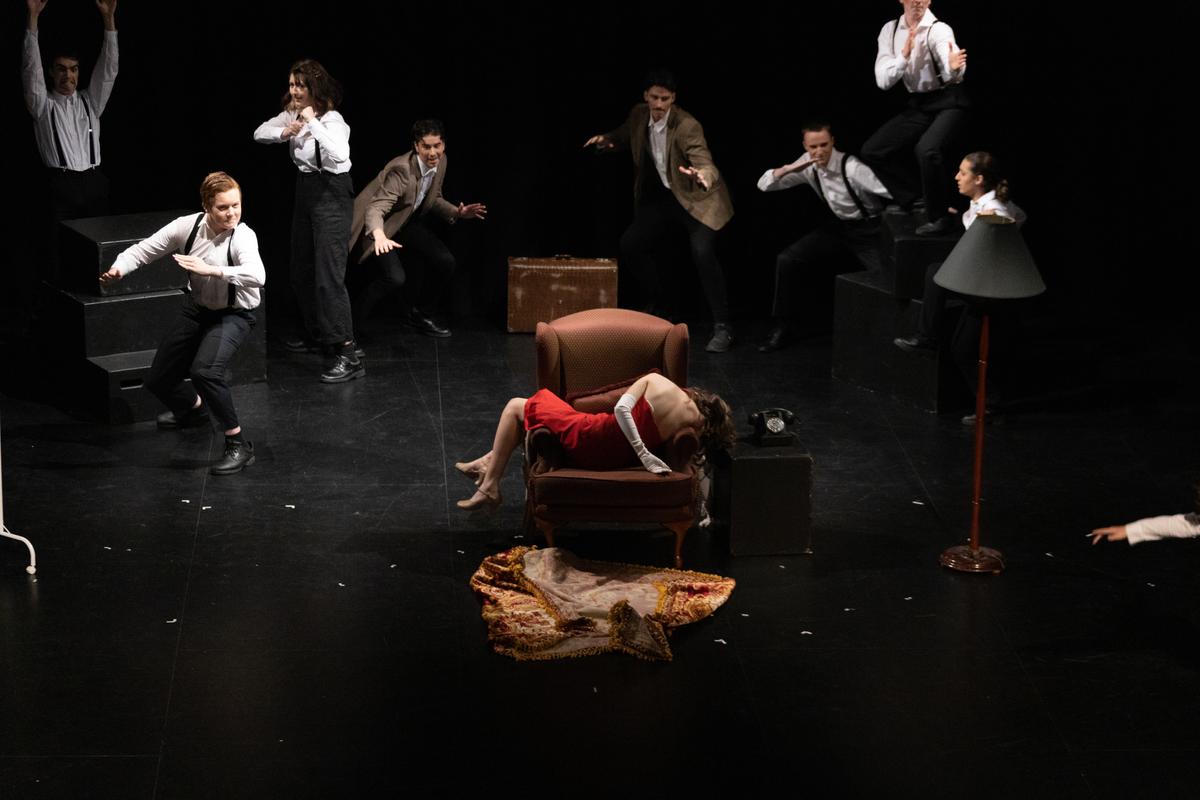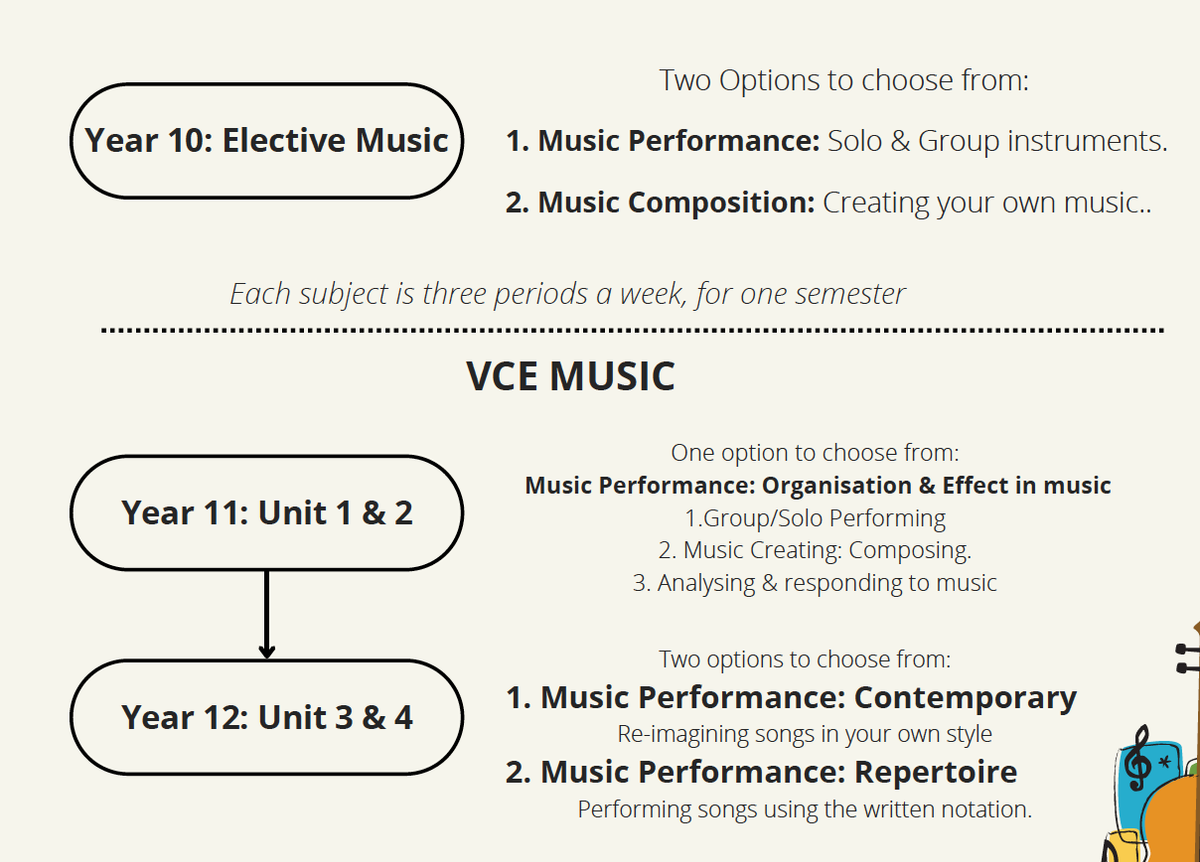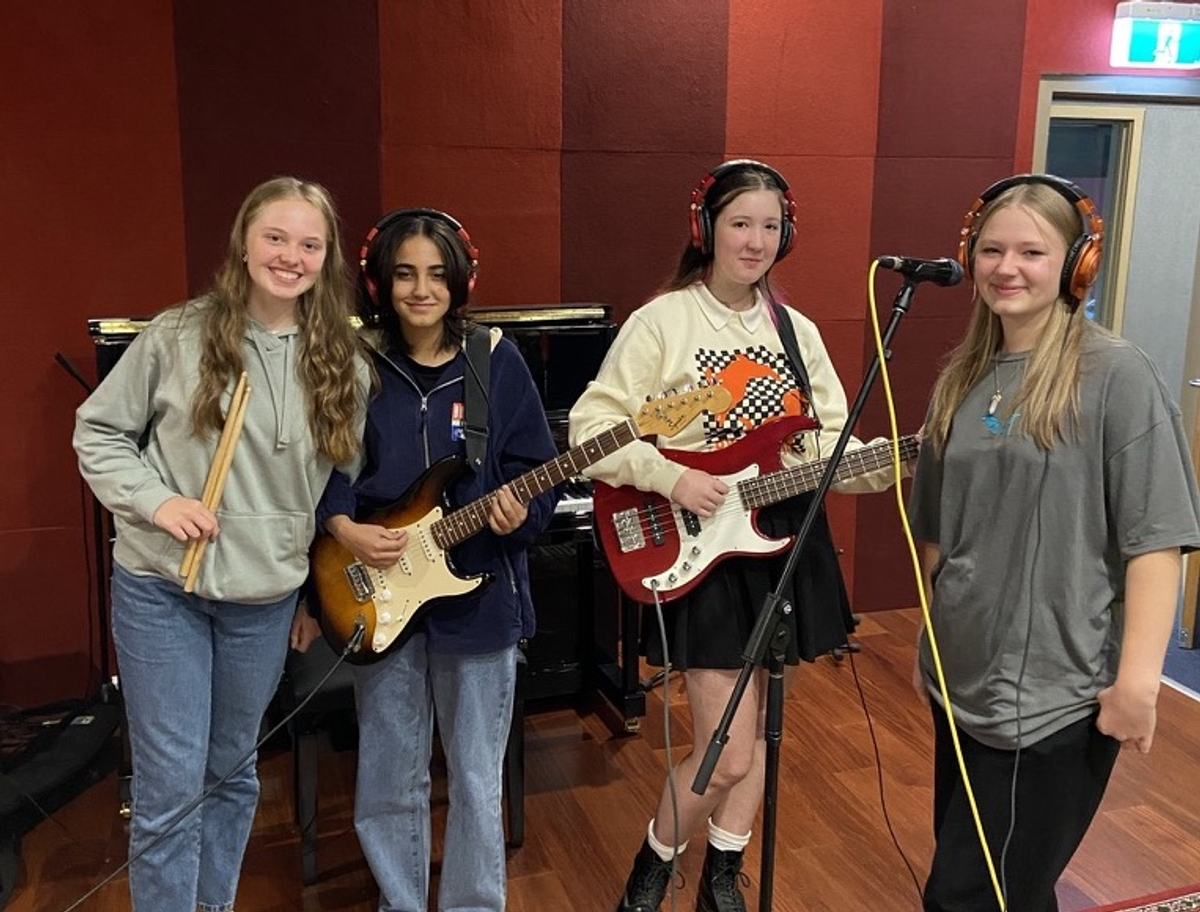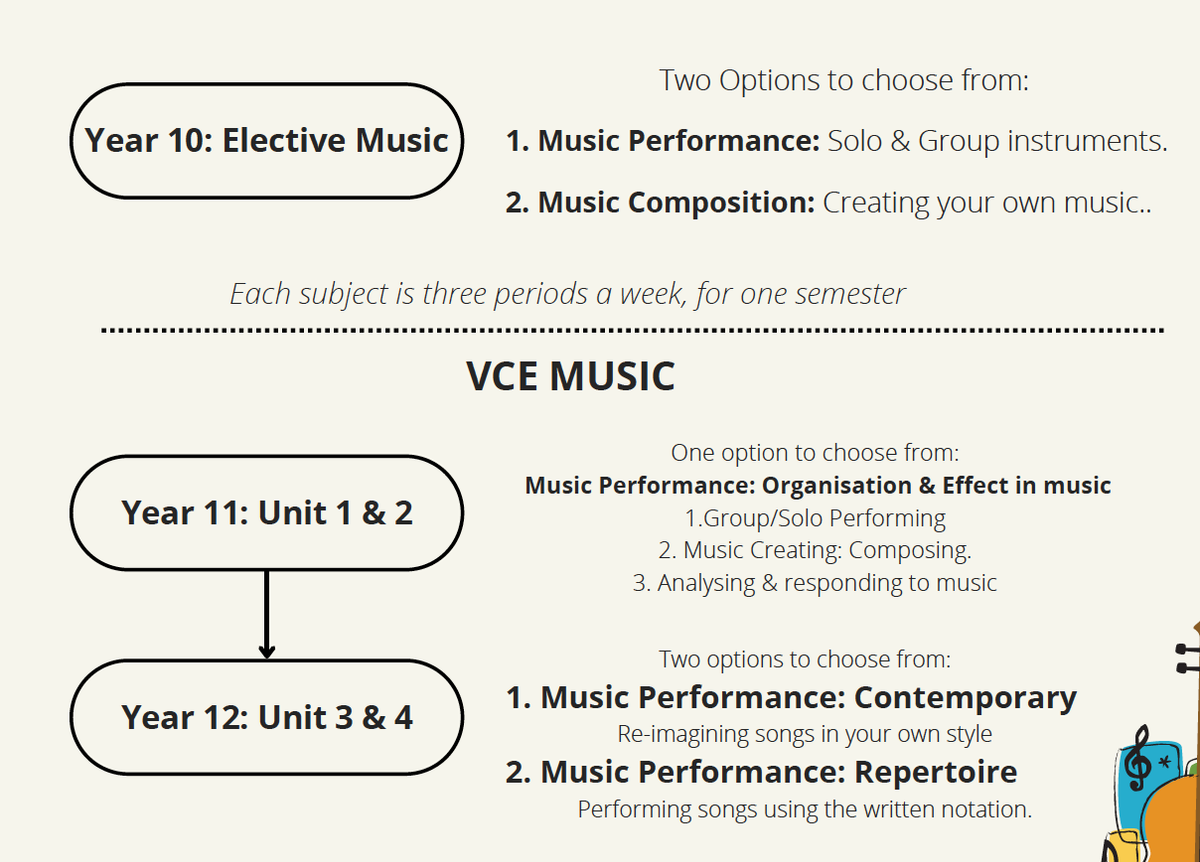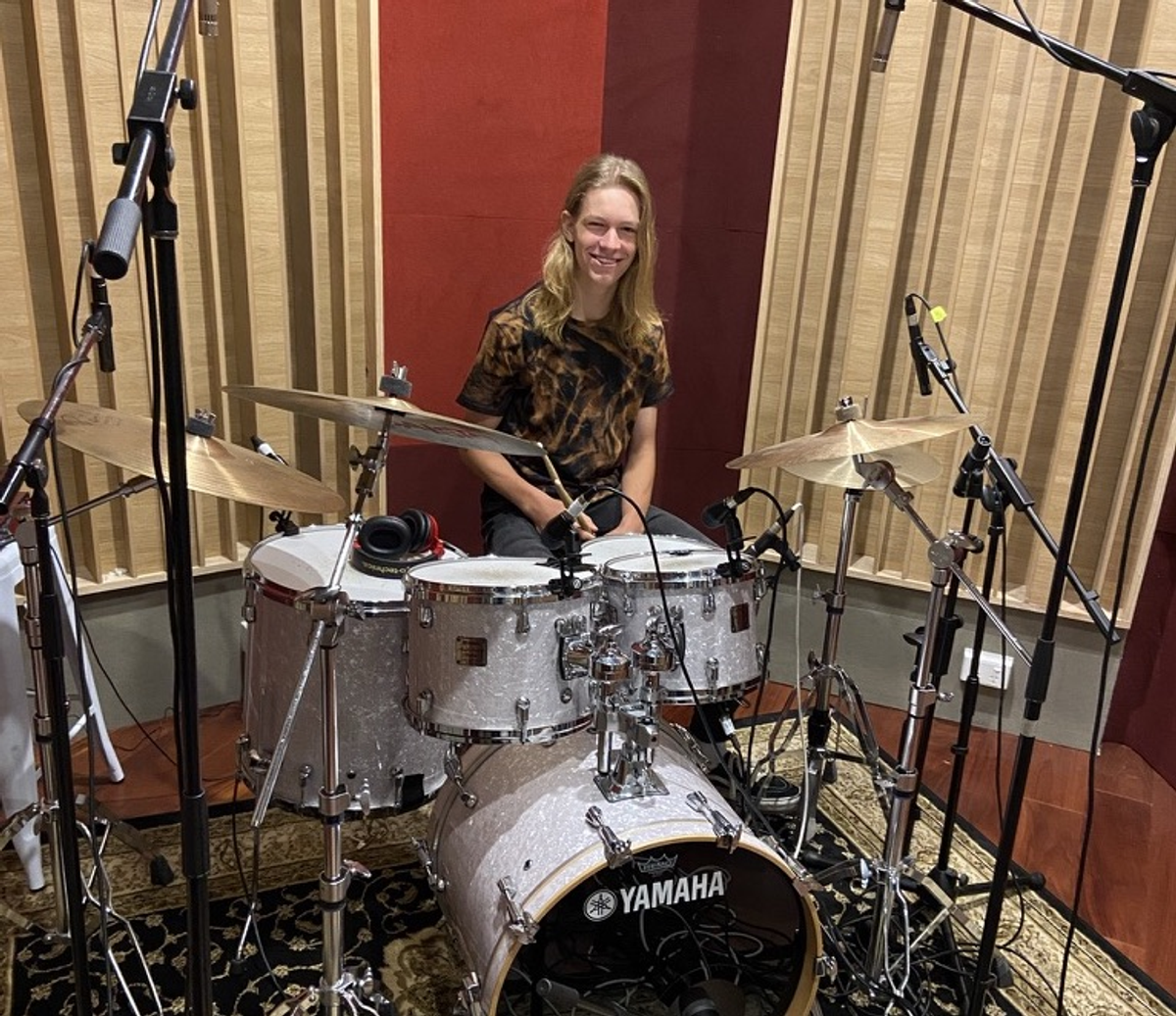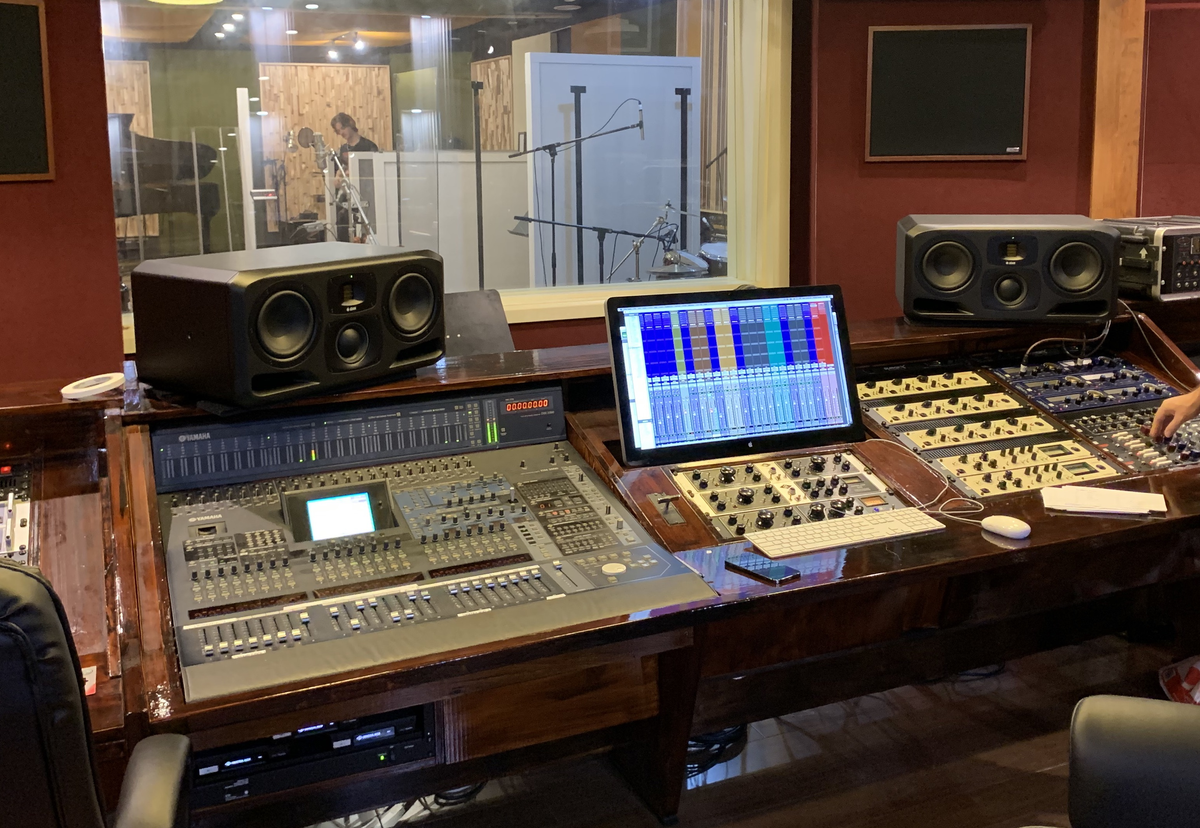Year 9 Performing Arts

Performing Arts Elective Subjects (Semester Based) |
|---|
Drama |
Music Performance |
Song Writing 101 |
Sound, Stage and Lighting |
Drama
The Year 9 elective course aims to provide students with the opportunity to develop and sustain different roles and characters to realise dramatic intentions and engage audiences. They perform devised and scripted drama in different forms, styles and performance spaces. They plan, direct, produce, rehearse and refine performances. They select and use the elements of drama, narrative and structure in directing and acting and apply stagecraft. They use performance and expressive skills to convey dramatic action and meaning. Students analyse the elements of drama, forms and performance styles and evaluate the meaning and aesthetic effect in a drama they devise, interpret, perform and view. They use experiences of drama practices from different cultures, places and times to evaluate drama.
Explore and Express Ideas
Students will be able to:
- Improvise the elements of drama and narrative structure to develop ideas, and explore subtext to shape devised and scripted drama.
- Manipulate combinations of the elements of drama to develop and convey the physical and psychological aspects of roles and characters consistent with intentions in dramatic forms and performance styles.
Drama Practices
Students will be able to:
- Practise and refine the expressive capacity of voice and movement to communicate ideas and dramatic action in a range of forms, styles and performance spaces.
- Structure drama to engage an audience through manipulation of dramatic action, forms and performance styles and by using design elements.
Present and Perform
Students will be able to:
- Perform devised and scripted drama making deliberate artistic choices and shaping design elements to unify dramatic meaning for an audience.
Respond and Interpret
Students will be able to:
- Evaluate how the elements of drama, forms and performance styles in devised and scripted drama convey meaning and aesthetic effect.
- Analyse a range of drama from contemporary and past times to explore differing viewpoints and enrich their drama practice.
Music
Music Performance
Students will focus on performing, interpreting and recreating the music of others whilst developing their own personal style. They will rehearse and perform both as a soloist and as a member of a group, applying feedback and refining their skills on their chosen instrument or voice. Students look at a wide variety of musical styles through composition, arrangement, analysis, aural training, and performance. They build skills in communication, running their own rehearsals, selecting music, and collaborating with other musicians.
The subject provides an excellent pathway into any of our year 10 and VCE music subjects.
Explore and Express Ideas
Students will learn to:
Recreate, Improvise and arrange music, using aural awareness and technical skills to manipulate the elements of music in developing music ideas
Manipulate combinations of the elements of music in a range of styles, using technology and written forms to communicate music ideas and intentions.
Music Practices
Students will learn to:
Create, practice, and rehearse a variety of performance repertoire with increasing technical and expressive skills and awareness of stylistic conventions
Plan, develop, and notate compositions with an understanding of style and convention
Present and Perform
Students will be able to:
Perform music applying techniques and expression to interpret the composer’s use of the elements of music and compositional devices
Respond and Interpret
Students will be able to:
Evaluate a range of performances and compositions to inform and refine their own music making
Analyse a range of music from contemporary and past times, explore differing viewpoints and enrich their music making, and consider music in international contexts
Song Writing 101
Song Writing 101 will give students from all levels of experience in music an opportunity to explore their creative side and delve into the world of creating their own music. Students will listen to a variety of music and learn common structures in music. Students’ analysis and knowledge of how composers use ideas, stimuli and creative processes becomes a starting point for creating their own music. From here they will follow a scaffolded and sequential approach to learn how to write, record and perform their own compositions.
This subject can be studied as a stand-alone subject or would be a perfect accompaniment to Year 9 Music Performance. Future pathways include
Explore and Express Ideas
Students will learn to:
Explore sound and silence and ways of using voice, instruments and technologies to develop and express ideas.
Use listening skills and imagination to develop ideas in response to stimuli such as music they have listened to, observations, feelings, experiences and research.
Manipulate combinations of the elements of music in a range of styles, using technology and notation to communicate music ideas and intentions.:
Music Practices
Student will learn to:
Create, practise and rehearse music to interpret a variety of performance repertoire with increasing technical and expressive skill and awareness of stylistic conventions
Present and Perform
Students will be able to:
Focus on planning, rehearsing, and refining their compositions to communicate ideas and intentions to an audience.
Perform music applying techniques and expression and varying compositional devices.
Respond and Interpret
Students will be able to:
Use listening skills to discriminate, identify and describe qualities of sound and features of music.
Evaluate a range of performances and compositions to inform and refine their own music making.
Sound, Stage and Lighting
‘Sound, Stage and Lighting’ Production will build on and extend students' interest in everything behind the scenes in performing arts. Students will be trained & gain experience in organising, setting up and running live music and theatre performances. Students will further gain knowledge utilising technologies to capture, edit and manipulate sound through recording performances. They will learn about signal chains, mixing sound, lighting, problem-solving and required OHHS procedures.
This subject will provide you with skills that can be utilized in setting up for future events at Viewbank College and beyond, (production, lunch time concerts, assemblies) as well as your own endeavours in music composition & sound production. Common pathways include VCE VET - Music Industry or a Certificate III - Music Industry (Sound Production) at NCAT.
Explore and Express Ideas
Students will learn to:
Exploring sound and silence and ways of using voice, instruments, and technologies to develop and express ideas.
Use listening skills to refine and provide feedback on performances
Manipulating sound structure, elements, and concepts with intent to represent and communicate ideas.
Music Practices
Students will learn to:
Practise and refine technical and expressive skills as individuals and refine their work in response to feedback.
Developing understanding, skills, techniques, technologies and processes of sound production.
Present and Perform
Students will be able to:
Focus on planning, organising and running music performances and communicating ideas and intentions to an audience.
Use instruments & technologies in live & recorded performances.
Respond and Interpret
Students will be able to:
Use listening skills to discriminate, identify and describe qualities of sound and features of music.
Evaluate a range of resources and techniques to produce sound to inform and refine their own sound production.

